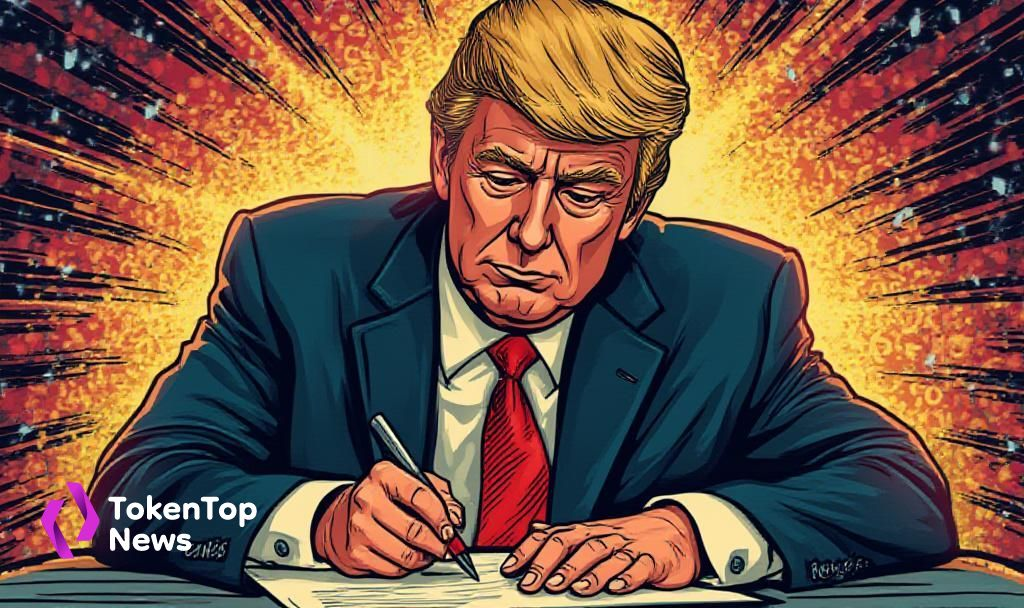Trump Signs Historic U.S. Cryptocurrency Regulation Bill
- Trump signs U.S. crypto bill, impacts stablecoins.
- First federal stablecoin regulation established.
- Potential increased institutional crypto interest.

Donald Trump has signed the GENIUS Act, establishing the first federal cryptocurrency regulatory framework in the United States, with key attendees including major crypto executives. The act targets stablecoins, emphasizing robust consumer protections and transparency.
The enactment of the GENIUS Act signifies a pivotal development in U.S. cryptocurrency policy, expected to expand market participation through regulatory clarity.
The GENIUS Act
The GENIUS Act, signed by Donald Trump, marks the establishment of the first major U.S. crypto legislation. This act focuses on creating a comprehensive framework around stablecoins, emphasizing mandatory consumer protection and reserve transparency.
“This could be perhaps the greatest revolution in financial technology since the birth of the Internet itself,” said Donald Trump. “I’m committed to signing landmark crypto market structure legislation this year.”
Trump’s decision to enact this law follows his prior executive order establishing a U.S. Digital Asset Stockpile. Regulatory framework will now require stablecoin issuers to disclose reserves monthly, aiming to restore consumer and institutional confidence.
The immediate effects are noticeable in the $250 billion stablecoin market, where stricter compliance and enhanced confidence are anticipated. This shift may facilitate broader institutional and retail participation.
Besides financial implications, Trump’s move aims to bolster national security and preserve the U.S. dollar’s global dominance. This early policy is seen as pivotal in shaping future crypto legislation across other digital asset segments.
The GENIUS Act could pave the way for similar regulatory efforts for DeFi projects. Insightful analysis suggests that this regulatory move could inspire global counterparts, mirroring the precedent set by EU’s MiCA regulation.




